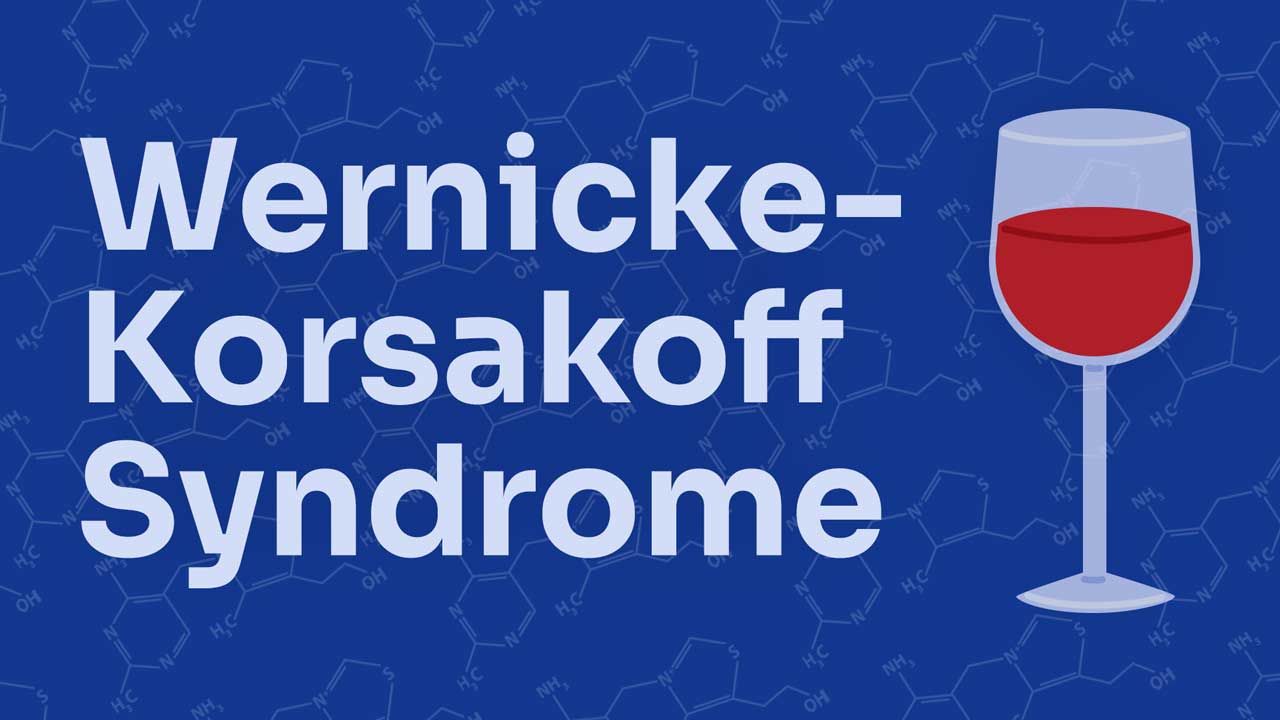Note: While Wernicke-Korsakoff syndrome has a variety of causes related to thiamine (vitamin B1) deficiency, this Article primarily focuses on alcohol as a causative factor.
Excessive alcohol consumption can be the cause of a raft of serious health issues, including liver disease, cancers and substance abuse. In 2023 alone, there were an estimated 1,667 alcohol-related deaths in Australia (AIHW 2025).
Among these, Wernicke-Korsakoff syndrome (WKS) - the composite term for the dual presence of Wernicke encephalopathy (WE) and alcoholic Korsakoff syndrome - is a form of alcohol-related brain injury associated with long-term alcoholic behaviour (Dementia Australia 2025).
What is Wernicke-Korsakoff Syndrome?
WKS is most commonly referred to as an alcohol-related brain injury (ARBI), developed as a result of long-term alcohol abuse leading to severe thiamine deficiency. However, it can also develop in a handful of other conditions that lead to a thiamine deficiency (Mosel 2024).
WKS is usually preceded by a sudden and acute phase of Wernicke encephalopathy, followed by the development of a chronic alcoholic Korsakoff syndrome phase (Dementia Australia 2025).
Prevalence of Wernicke-Korsakoff Syndrome
ARBI most commonly affects males who are over the age of 45 years and who have a long history of alcohol abuse (Dementia Australia 2025).
It presents in roughly 3% of the general population in Australia (Akhouri et al. 2023).
Symptoms of Wernicke Encephalopathy
Wernicke encephalopathy has classically been defined as a clinical triad of:
- Changes in mental state: Confusion, lethargy, inattentiveness, drowsiness, indifference, delirium, loss of consciousness.
- Ataxia (the inability to coordinate voluntary movements): Leg tremor, poor balance, staggering, inability to stand or walk, loss of muscle coordination, slow and unsteady gait.
- Ocular disturbances: Jerky eye movement, paralysis of eye muscles, double vision, rapid involuntary eye movement, drooping of the upper eyelids (ptosis).
(NORD 2025; Akhouri et al. 2023)
However, it’s important to note that less than one-third of patients present with the complete triad (Akhouri et al. 2023).
From here, approximately 80 to 90% of individuals develop Korsakoff syndrome (NORD 2025).
Symptoms of Korsakoff Syndrome:
Korsakoff syndrome mostly presents as memory impairment, such as:
- Memory loss
- Inability to form new memories
- Inability to learn new information
- Personality changes
- Confabulation (creation of false memories)
- Hallucinations
- Lack of understanding of their condition.
(NORD 2025; Dementia Australia 2025)
Causes of Wernicke–Korsakoff Syndrome
While the most common cause of WKS is heavy and long-term alcohol abuse, it is important to note that not all heavy drinkers will develop WKS.
It's not currently known why some individuals will and some will not develop WKS. However, genetics and diet are suspected to be involved (NORD 2025; Alzheimer's Society 2021).
The main cause of WKS is a deficiency in thiamine (vitamin B1). Heavy alcohol consumption reduces the absorption and further creation of thiamine by the body and diminishes that which is stored in the liver (NORD 2025). When thiamine levels are low, brain and nerve cell damage can occur.

It's also important to note that alcohol consumption is not the only cause of thiamine deficiency. WKS can also develop in individuals who are experiencing a lack of thiamine due to other chronic conditions such as cancer or AIDS; prolonged treatments such as dialysis or IV therapy; or severe malnutrition, such as starvation (NORD 2025; Xiong 2023).
Diagnosis of Wernicke-Korsakoff Syndrome
WKS can be difficult to diagnose, as there are a variety of conditions that present similarly, including:
- Anoxic encephalopathy
- Alzheimer's disease
- Temporal lobe epilepsy
- Concussive head injury
- Dementia with Lewy bodies
- Herpes simplex virus
- Temporal lobe infarction
- Transient global amnesia
- Third ventricle tumour.
(Akhouri et al. 2023)
A diagnosis of WKS is made based on the patient’s history of drinking and clinical findings (Akhouri et al. 2023).
Testing for WKS can include blood tests to rule out other disorders and to measure protein and thiamine levels in the patient. CT or MRI scans can also be requested. Brain scans can reveal changes in the brain, such as a degeneration of the mammillary bodies, that are indicative of WKS (NORD 2025).
Treatment of Wernicke-Korsakoff Syndrome
The goals of WKS treatment are twofold: to control the symptoms and to prevent the disorder from worsening (MedlinePlus 2024).
Treatment involves aggressive thiamine replacement therapy, which can improve encephalopathy symptoms within 5 to 12 days (Akhouri et al. 2023). Withdrawal and abstinence from alcohol, as well as nutritional interventions, are also recommended (NORD 2025).
If WKS is recognised and treated early, significant recovery can be made. However, in some cases, mental state changes, particularly memory impairment, can continue for several years. (NORD 2025; Akhouri et al. 2023).
Sadly, some patients will never fully recover, and about 25% of people who develop WKS require long-term institutional care. In severe cases, there is a mortality rate of 10 to 15% (Akhouri et al. 2023).
Prevention strategies can include limiting alcohol consumption. A healthy and balanced diet can also help to reduce the chances of developing WKS (MedlinePlus 2024).
Test Your Knowledge
Question 1 of 3
In relation to Wernicke-Korsakoff syndrome, what does the term 'ataxia' refer to?
Topics
References
- Akhouri, S, Kuhn, J & Newton, EJ 2023, ‘Wernicke-Korsakoff Syndrome’, StatPearls, viewed 5 May 2025, https://www.ncbi.nlm.nih.gov/books/NBK430729/
- Alzheimer's Society 2021, Alcohol-Related Brain Damage (ARBD): What is it and Who Gets it?, Alzheimer's Society, viewed 5 May 2025, https://www.alzheimers.org.uk/about-dementia/types-dementia/alcohol-related-brain-damage-arbd
- Australian Institute of Health and Welfare 2025, Alcohol, Tobacco & Other Drugs in Australia: Alcohol, Australian Government, viewed 5 May 2025, https://www.aihw.gov.au/reports/alcohol/alcohol-tobacco-other-drugs-australia/contents/drug-types/alcohol
- Dementia Australia 2025, Alcohol-Related Brain Injury (ARBI), Dementia Australia, viewed 5 May 2025, https://www.dementia.org.au/about-dementia/alcohol-related-brain-injury-arbi
- MedlinePlus 2024, Wernicke-Korsakoff Syndrome, U.S. Department of Health and Human Services, viewed 5 May 2025, https://medlineplus.gov/ency/article/000771.htm
- Mosel, S 2024, Wernicke-Korsakoff Syndrome- Causes, Symptoms, Effects, Treatment, American Addiction Centers, viewed 5 May 2025, https://alcohol.org/health-effects/wernicke-korsakoff-syndrome/
- National Organisation for Rare Disorders 2025, Wernicke-Korsakoff Syndrome, NORD, viewed 5 May 2025, https://rarediseases.org/rare-diseases/wernicke-korsakoff-syndrome/
- Xiong, GL 2023, Wernicke-Korsakoff Syndrome, Medscape, viewed 5 May 2025, https://emedicine.medscape.com/article/288379-overview#showall
 New
New 
